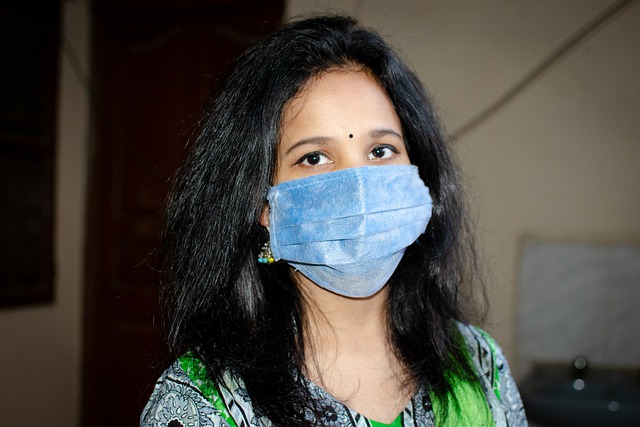As the world struggles with the global coronavirus pandemic, we are learning how to deal with the “new normal.” Health care workers are going without breaks or days off. Families are coping with layoffs and have been thrown into homeschooling their children. The majority of us are under stay-at-home orders. The outcome of such undue psychological stress creates anxiety and can trigger symptoms of post traumatic stress disorder (PTSD). Watching the constant news coverage of the outbreak doesn’t help.
The therapists at the Center for Treatment of Anxiety and Mood Disorders have long been concerned about the repetitive exposure to traumatic life events that people get through the internet and television newscasts. Not only are we captive audiences to the trauma, we are often mesmerized by it and can have trouble disconnecting ourselves from the TV set or internet.
Trauma Symptoms In The Wake Of COVID19
Right now, we all are experiencing this pandemic in our own unique way. Our daily lives have changed, seemingly overnight. Watching the news coverage of the infections and deaths around the globe, combined with our own worries for our loved ones and ourselves, has created a psychological trauma for many.
This trauma leaves people shaken, especially because we have little to no control over the virus. Numerous times in the last few weeks, I’ve heard people say, “I had no idea this could happen.” Thus, we feel helpless in the face of the virus’ persistent march.
This unrelenting distress can bring up the emotions surrounding other traumatic life events. For those who suffer from PTSD, it can also intensify the inescapable fear that something bad will happen to them again.
Even though these emotional responses are part of a normal reaction to a stressful situation, trauma actually changes patterns in your brain. It causes you to carry the emotional distress long after the events have passed. And, watching untold hours of news coverage keeps that distress actively whirling through our minds.
Self Care For Stress During The Coronavirus Outbreak
If you know someone who has had the virus, you are likely experiencing a heightened fear that you could also get it. Additionally, since most of us know the virus’ symptoms by now, getting the runny nose that defines allergy season or the cough that may come with the pollen from budding trees can send us into a panic.
Couple this with the fact that we don’t have a timeframe for when our lives can get back to normal and it seems that a trauma response and some form of PTSD is almost inevitable for many people.
To support yourself emotionally during the outbreak, it will help if you can normalize your environment as much as possible. By that I mean:
- Try to create a routine. Get out of your pajamas and dress for a regular day. Keep to an exercise schedule and a meal schedule. Block off time for certain activities, such as helping your children with school work or reading through emails. Structure helps you feel more stable and in control.
- Back off on the news coverage about the pandemic. Limit yourself to watching the news for an hour or less and do so several hours before bedtime so you don’t carry your distress into your sleep.
- Don’t beat yourself up for how you feel. It is perfectly normal to flounder a little while you adjust to this uncertain period in our lives.
- At the same time, be kind to yourself and those around you. Understand that they are going through similar fears, so try to take a step back before getting angry with someone (or yourself). Remember that fear is often expressed as anger.
- Get plenty of rest and eat as healthy a diet as possible.
- Engage in exercise to help relieve your stress. If you are worried about going outside, try jumping jacks or climbing the stairs in your home. I just saw a news report of a man who completed a marathon in his own back yard by running back and forth across the yard more than 7,000 times. While I am not advising that you suddenly attempt a back yard marathon, the point is to do what you can to get some exercise.
- Create a sense of safety by playing calming music, meditating, or “walking through” our national parks virtually.
- Keep in touch with friends and loved ones virtually. Many people are creating virtual dinner parties via a video platform, like Zoom or Skype, for example, or playing online games virtually with friends.
- Avoid destructive diversions, such as drinking alcohol, binge eating, or using illicit drugs.
For some people – especially the healthcare workers who are dealing with the virus on the front lines or those who have lost loved ones – the trauma response could morph into full blown PTSD. If you find your trauma symptoms are becoming overwhelming, don’t try to go it alone.
Many practitioners, including those at our trauma clinic, are able to see patients virtually during the pandemic. Reach out and get the help you need, particularly if your stress if interfering with your daily life and has persisted for longer than two to three weeks.
Learn To Feel Safe Again
By working with a mental health professional who specializes in trauma, you can experience recovery from your PTSD relating to the coronavirus.
For more information, please contact Dr. Andrew Rosen and The Center for Treatment of Anxiety and Mood Disorders in Delray Beach, Florida at 561-496-1094 today.
Dr. Andrew Rosen
Dr. Andrew Rosen PHD, ABPP, FAACP is a Board-Certified Psychologist and the Founder and Director of The Center for Treatment of Anxiety and Mood Disorders, as well as, the Founder of The Children’s Center for Psychiatry Psychology and Related Services.





